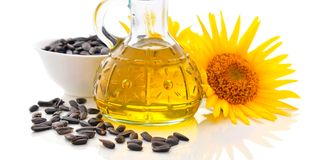Premium
Avoiding seed oils unnecessary

Most cooking oils on our shelves are seed oils from corn and sunflower, rich in omega-6 fatty acids but low in omega-3s.
Most cooking oils on our shelves are seed oils from corn and sunflower, rich in omega-6 fatty acids but low in omega-3s. This imbalance leads to an excessive omega-6 to omega-3 ratio. Corn oil has a ratio exceeding 20:1, while sunflower oil reaches around 40:1. Ideally, a balanced ratio of 1:1 to 4:1 is recommended for optimal health.
Omega-6 fatty acids play a key role in immune function by triggering inflammation in response to injury or infection. This response attracts immune cells to the affected area and is vital for healing and defence against infection.
Meanwhile, omega-3 fatty acids are needed to resolve inflammation caused by omega-6 once the immune response is complete, preventing chronic inflammation. In a balanced intake, this interplay ensures that the immune system functions efficiently without causing chronic inflammation.
However, excessive consumption of omega-6 can lead to the overproduction of inflammatory molecules, overwhelming the ability of omega-3s to resolve inflammation, increasing the risk of inflammatory diseases such as autoimmune disease, cardiovascular disease, insulin resistance, and other metabolic disorders.
While reducing omega-6 intake seems beneficial, completely avoiding seed oils is unnecessary. Omega-6 is essential for immune function, and inadequate intake can weaken the body's ability to fight infections. The key is balance, ensuring both omega-6 and omega-3 are consumed in proper proportions.
To continue using corn oil and sunflower oil in cooking, it is important to ensure that the daily requirements for omega-6 are not surpassed by monitoring oil consumption. Though some opt for alternatives like beef tallow, it’s not a perfect substitute.
Instead of eliminating seed oils, focusing on portion control and incorporating omega-3-rich foods can help maintain a healthy inflammatory balance. The goal is to consume seed oils wisely.
Rebeccah Waithanji is a lecturer in Medical Biochemistry at Kirinyaga University. [email protected]




